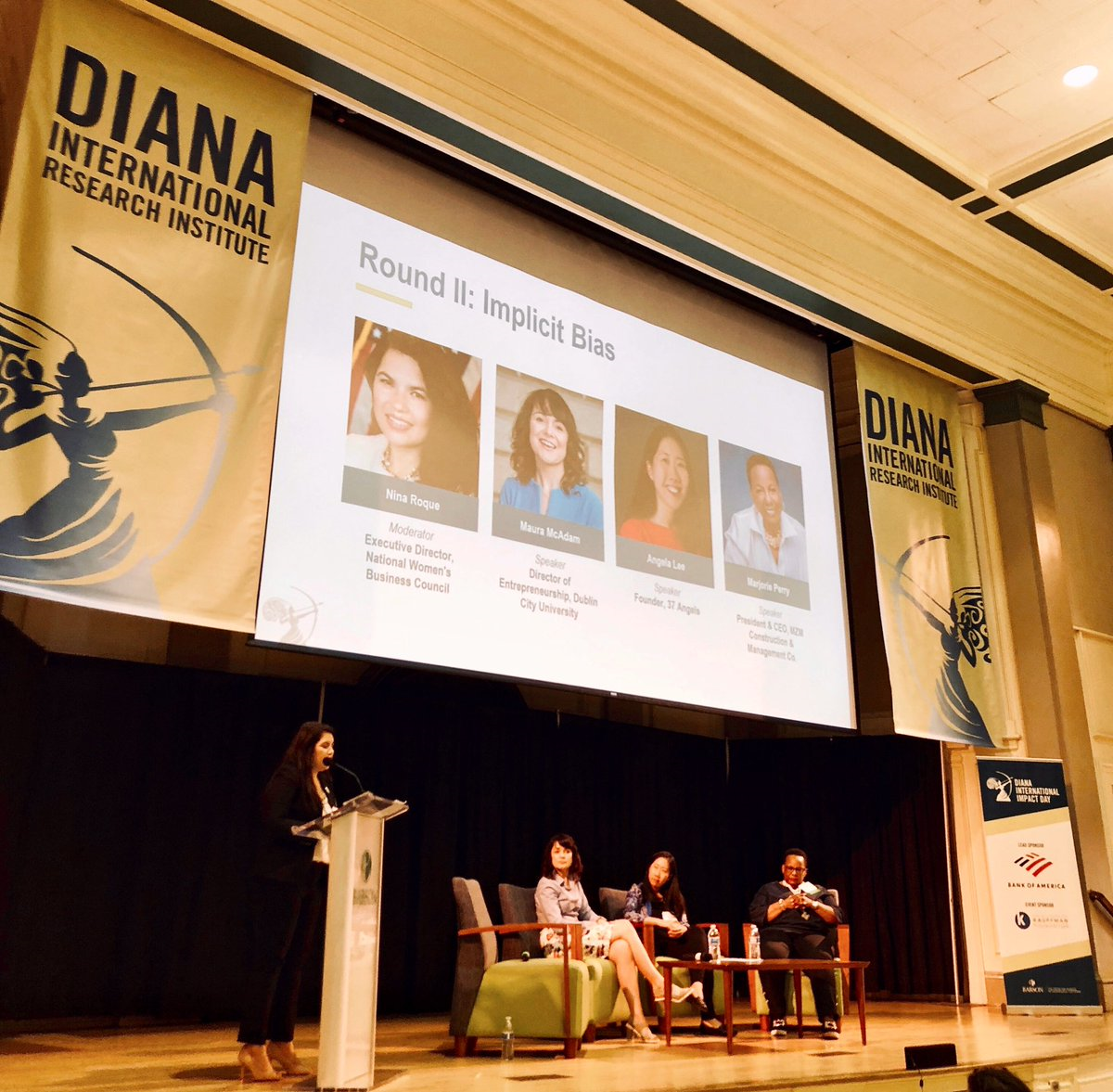NWBC Is Here To Listen

Throughout these past few weeks, I have had the opportunity to represent the National Women’s Business Council (NWBC) at the Kauffman Foundation’s Annual ESHIP Summit in Kansas City, MS, and at the Diana International Impact Day at Babson College in Wellesley, MA. Both convenings provided unparalleled dialogue between entrepreneurs, researchers, educators, investors, and policymakers.
At the Diana Impact Day, I had the great opportunity to moderate the Conference’s Session A: Connecting Research and Practice, with a specific focus on addressing financing for women entrepreneurs. The session was divided into two panels – the first on pipeline issues and the second on implicit bias. Each panel featured an entrepreneurial research expert, an investor, and a woman entrepreneur. Following each panel discussion, I invited conference attendees to discuss some of the perspectives presented, best practices to address any funding challenges identified, and some of their commitments to action.
Despite the significant gains that women entrepreneurs and business owners have made throughout the 30 years of NWBC’s existence, the dialogue between the panelists and the attendees highlighted the significant challenges and barriers that persist for women entrepreneurs seeking to start and grow their businesses. Most conference attendees were aware of the alarmingly low percentage of venture capital funds that are awarded to women entrepreneurs: just 2.7%. That’s just 2.7% of the total $130 billion in venture capital funding awarded in 2018![1]
At the conclusion of the Session, I provided a policy wrap-up for the conference attendees, where I summarized the recurring themes presented in the panel and roundtable discussions. They were: Access, Education, and Challenging the Institutional Bias in Funding.
Overwhelmingly, I heard from the speakers that acquiring venture capital is about access – access to a network of support and access to a network of potential funders and investors. If it’s all about access, it’s easy to understand why that may present more difficult challenges for diverse entrepreneurs who may be in more rural areas for example, or entrepreneurs who may also be first generation Americans.
I also heard that financing women entrepreneurs is about education, both for the entrepreneurs and the investors. It’s about educating women entrepreneurs how to pitch their already-investable ideas to investors. And as entrepreneur Carla Walker-Miller, founder and CEO of Walker-Miller Energy Services, said “it’s about [teaching women entrepreneurs] to eat the NO’s for breakfast.”
Dr. Alicia Robb, Founder and CEO of Next Wave Impact, pointed out that overcoming some of the challenges to funding women entrepreneurs is also about education and awareness related to alternative forms of capital – finding the right kind of capital for the right kind of entrepreneur. As she pointed out, alternative forms of capital may provide more suitable options for some entrepreneurs. This is also supported by NWBC Kiva and Kickstarter case studies, which revealed promising results for women entrepreneurs seeking to fund their business ventures through crowdfunding platforms.
Both Chip Hazard, General Partner at Flybridge Capital Partners & Investment Partner at XFactor Ventures, and Angela Lee, Founder of 37 Angels & CIO and Associate Dean at Columbia Business School, acknowledged the need for the investor community to recognize some of the institutional bias present in traditional funding structures. Overcoming some of these challenges requires venture capitalists and investors to recognize some of their own internal implicit associations with diverse entrepreneurs and unique or different business ideas. The vast majority of investors continue to be men[2], some of whom may find it difficult to understand or relate to a product that they won’t personally be able to use. A recent story I read about an entrepreneur seeking capital for her smart breast pump comes to mind.[3] In that case, she found great success in funding her venture through Kickstarter.
At the conclusion of the Session, I reiterated the Council’s commitment to listen and engage with diverse members of the the larger entrepreneurial ecosystem, and to continue to elevate their voices to policymakers. I am particularly encouraged by the Council’s new slate of recently installed members, who are especially committed to elevating the often unheard or overlooked voices of women entrepreneurs in rural areas and in STEM fields.
I also invited conference attendees to join in on NWBC’s roundtables around the country, to continue to share their research findings with us, and to stay engaged with us by providing comments and feedback on our public meetings and Annual Report to Congress and the President. It is critical to the work of the Council, as advisors to the President, Congress and the Small Business Administration, that we continue to hear from you.
[1] Funding Female Founders 2018
[2] Why women invest 40 percent less than men?
[3] How grown men behave when pitched for VC funding for smart breast pump?


